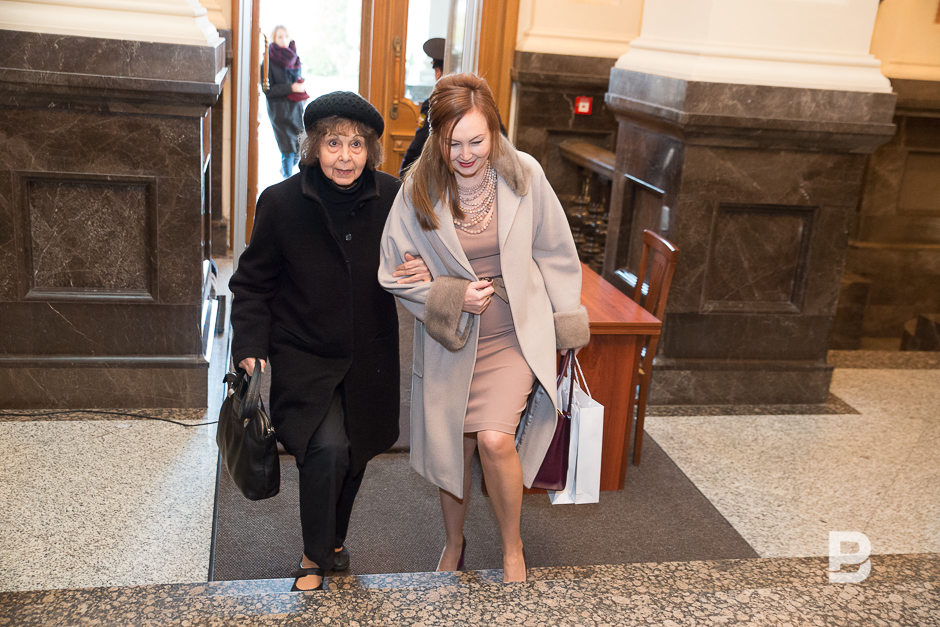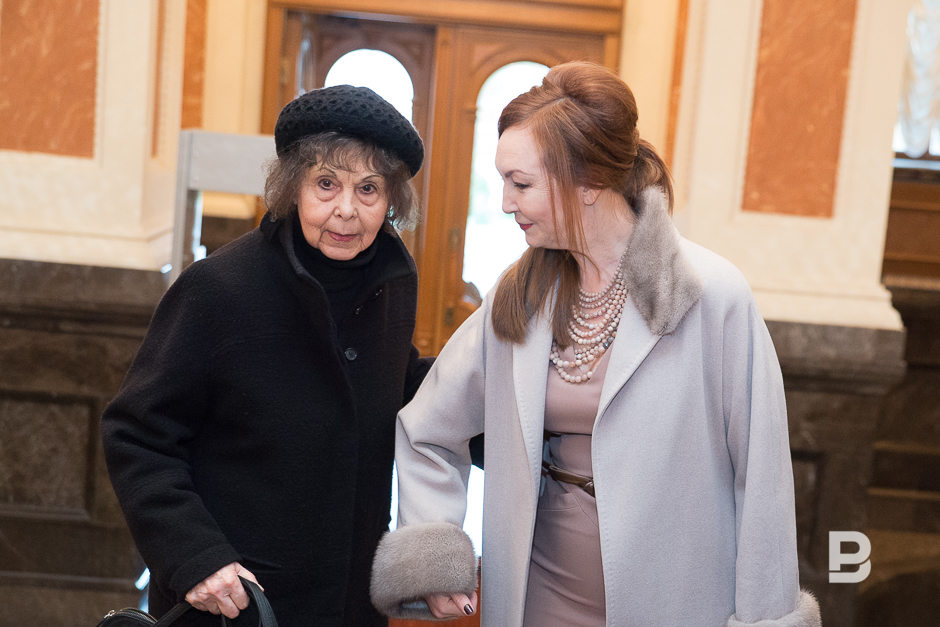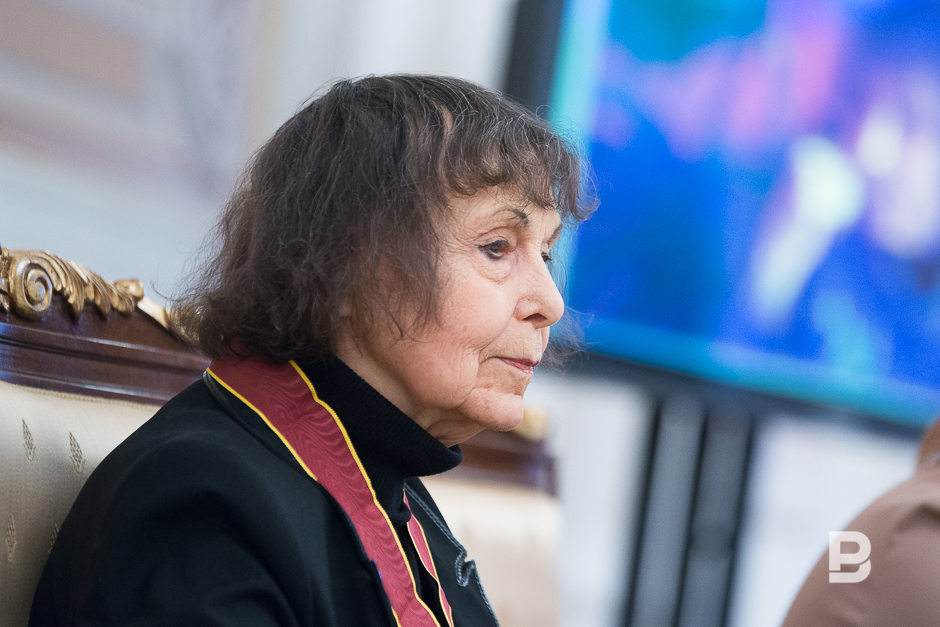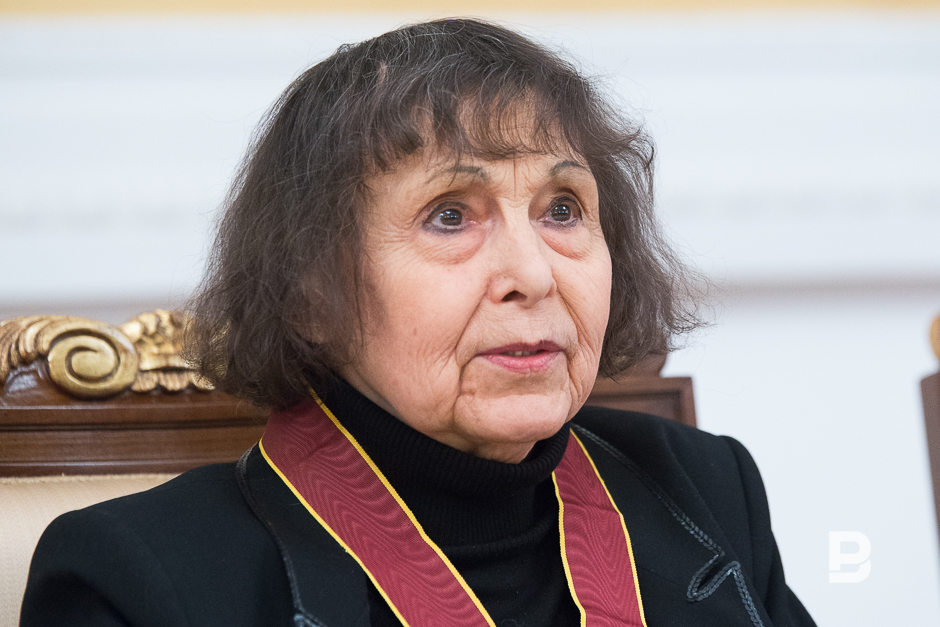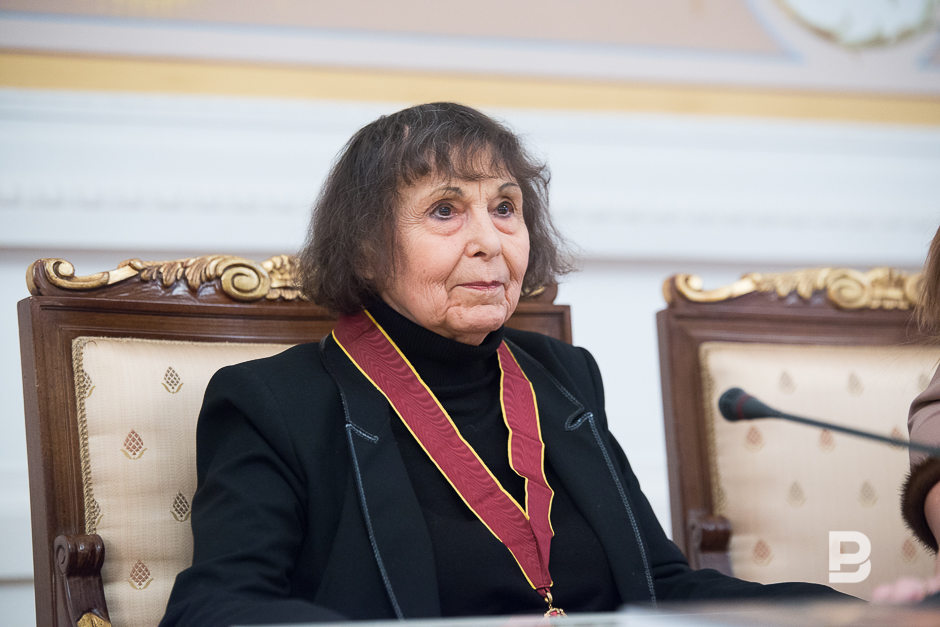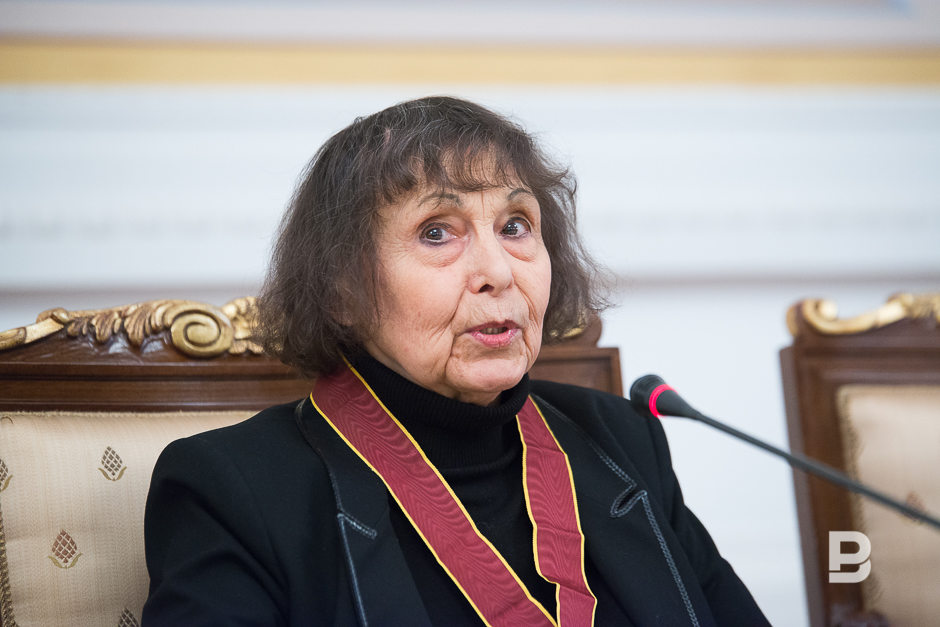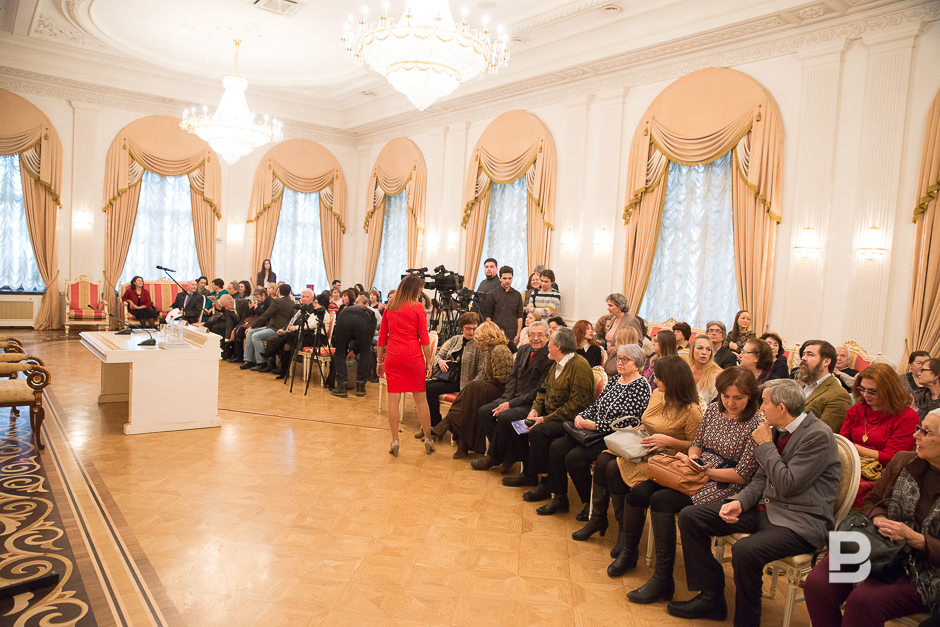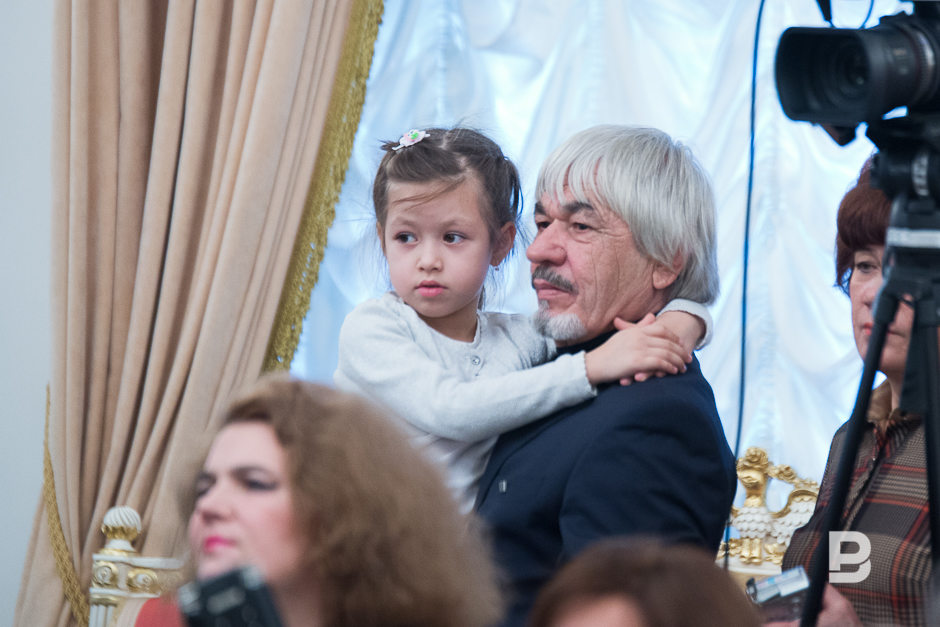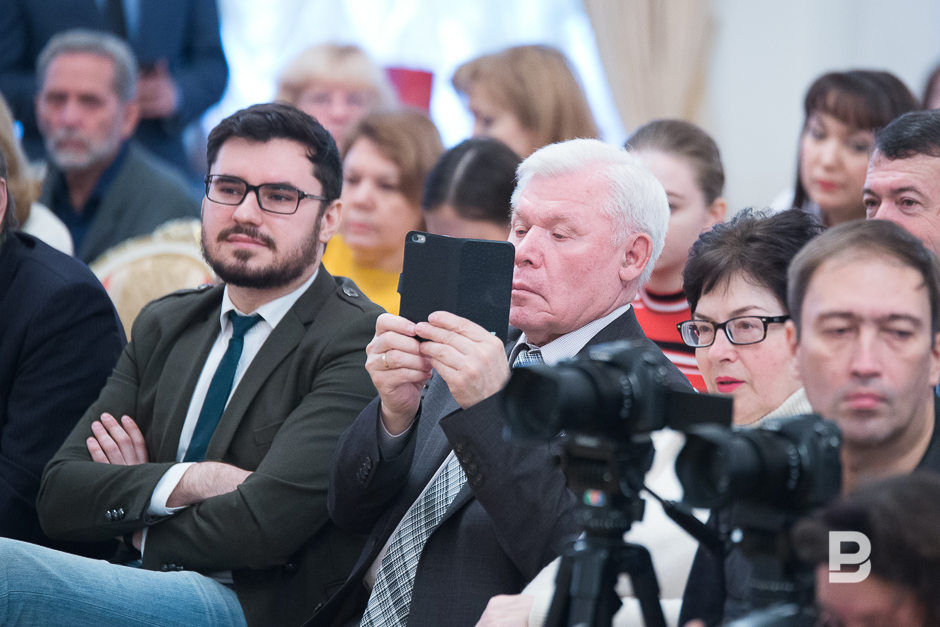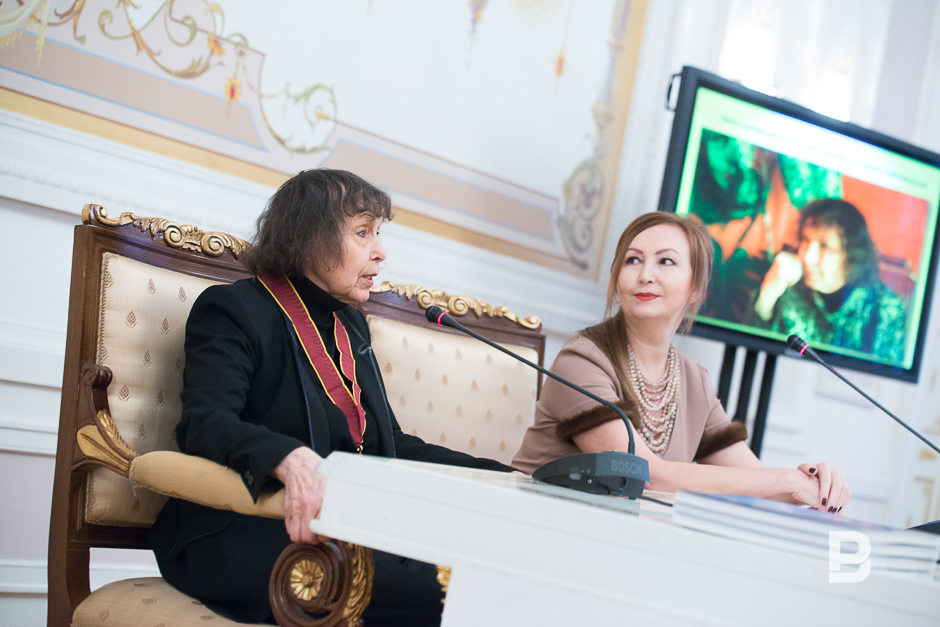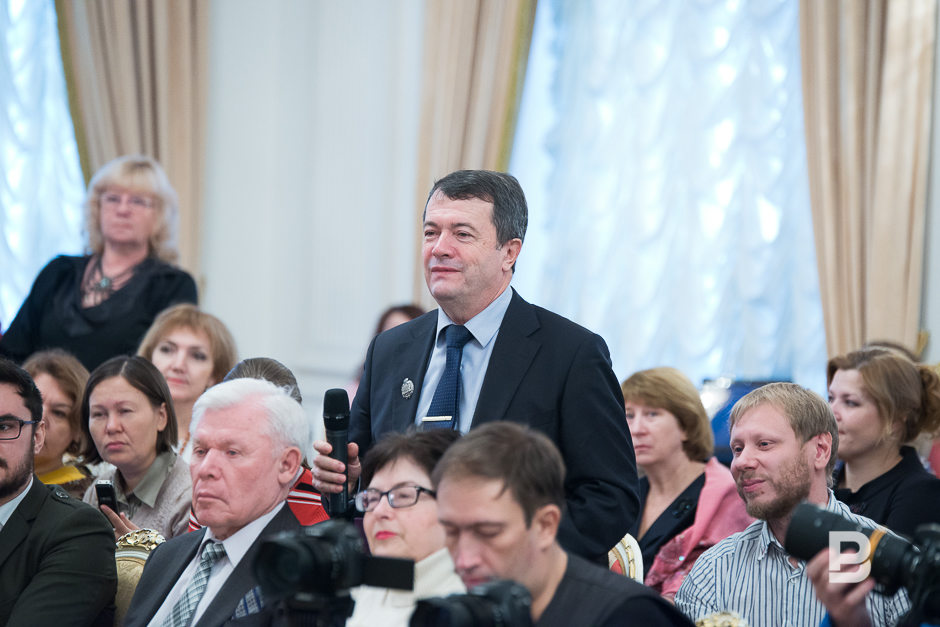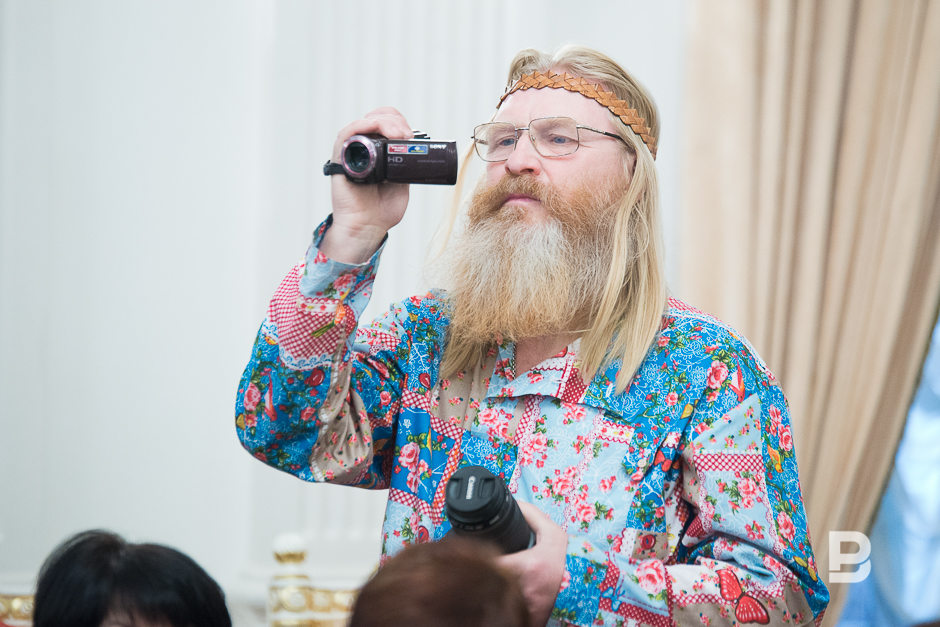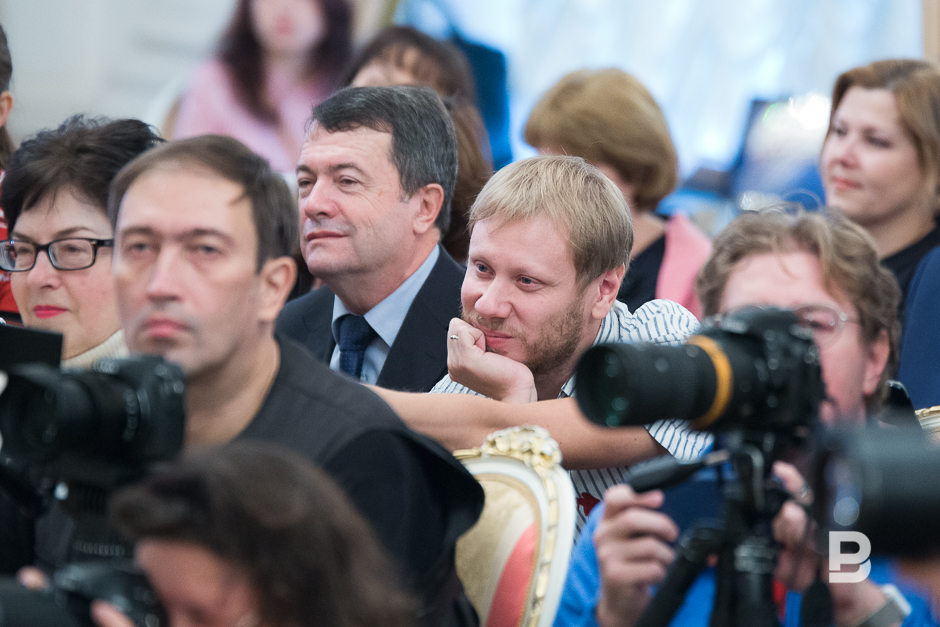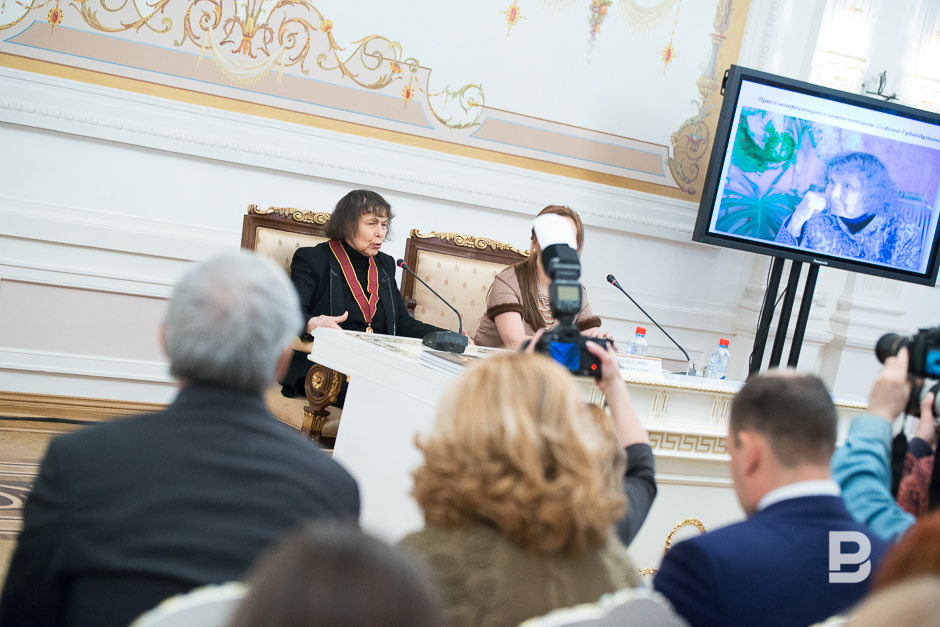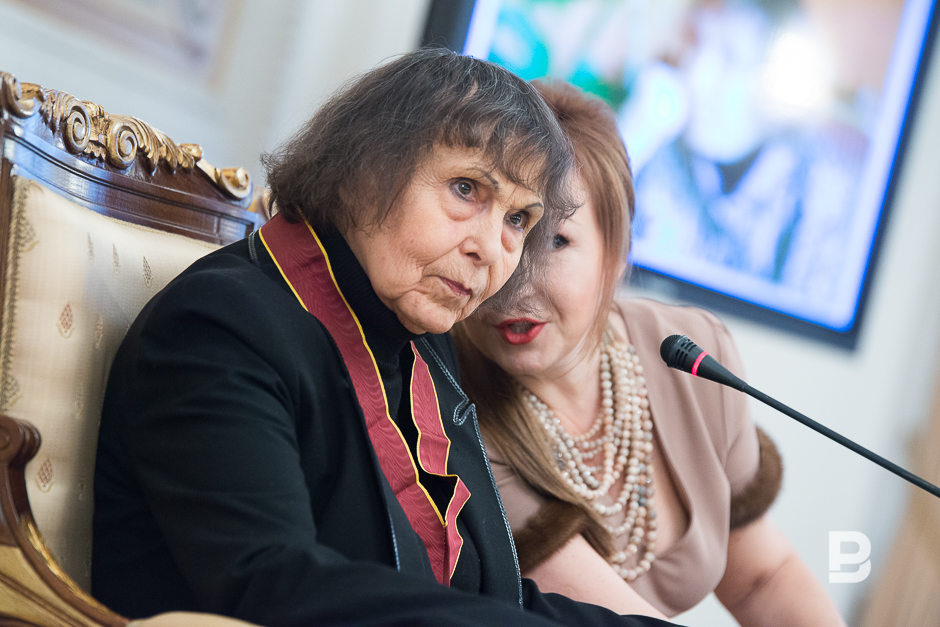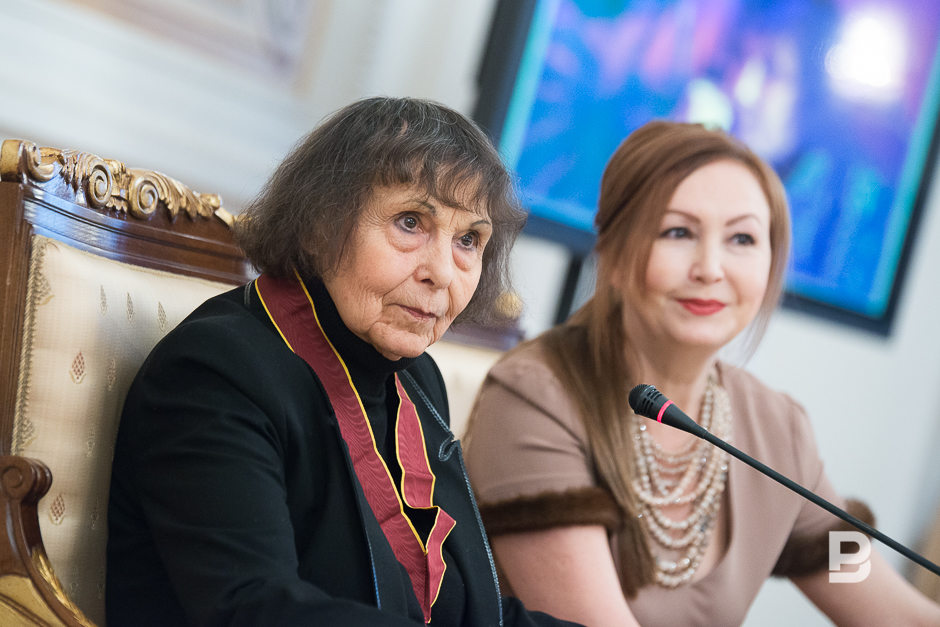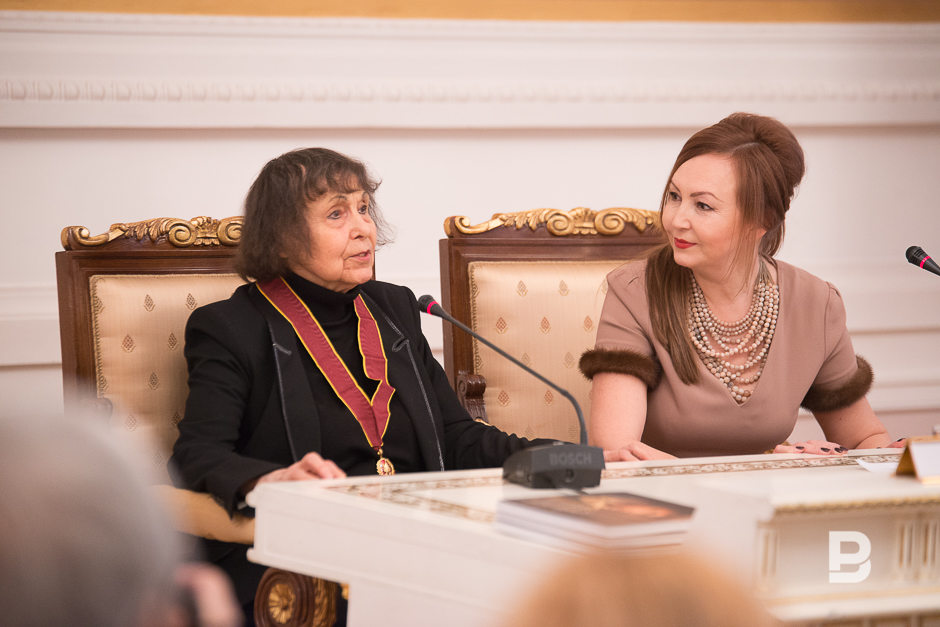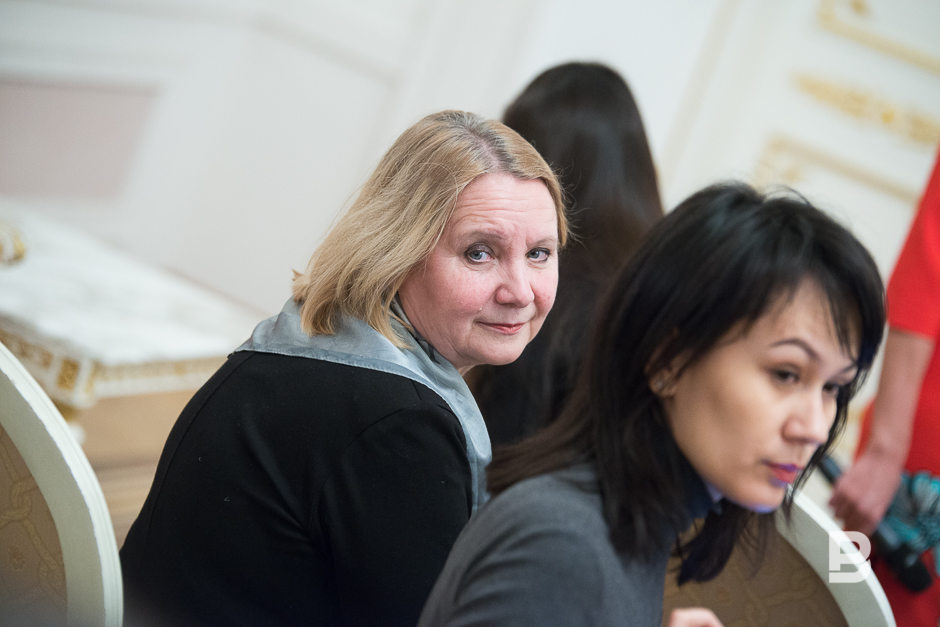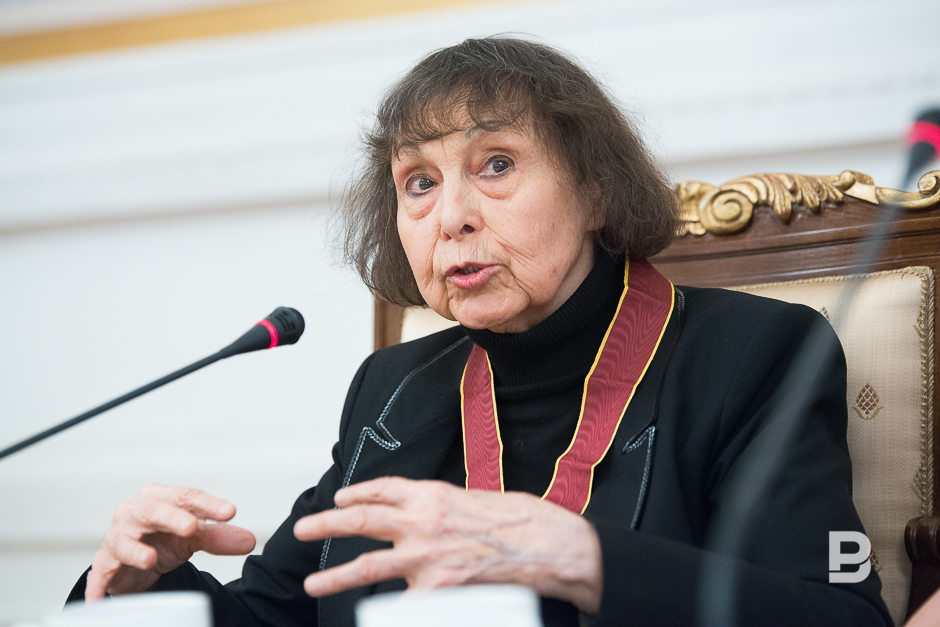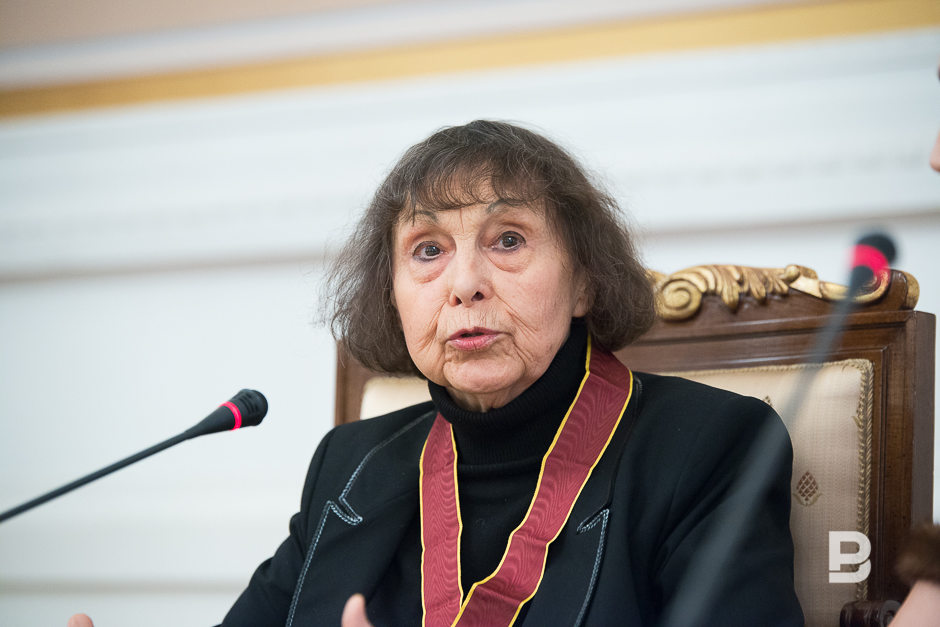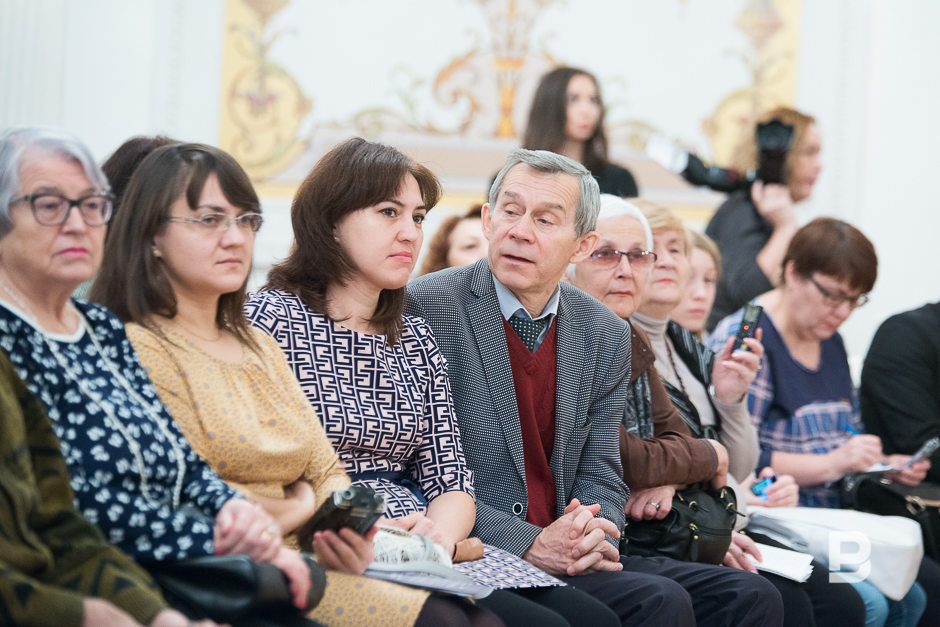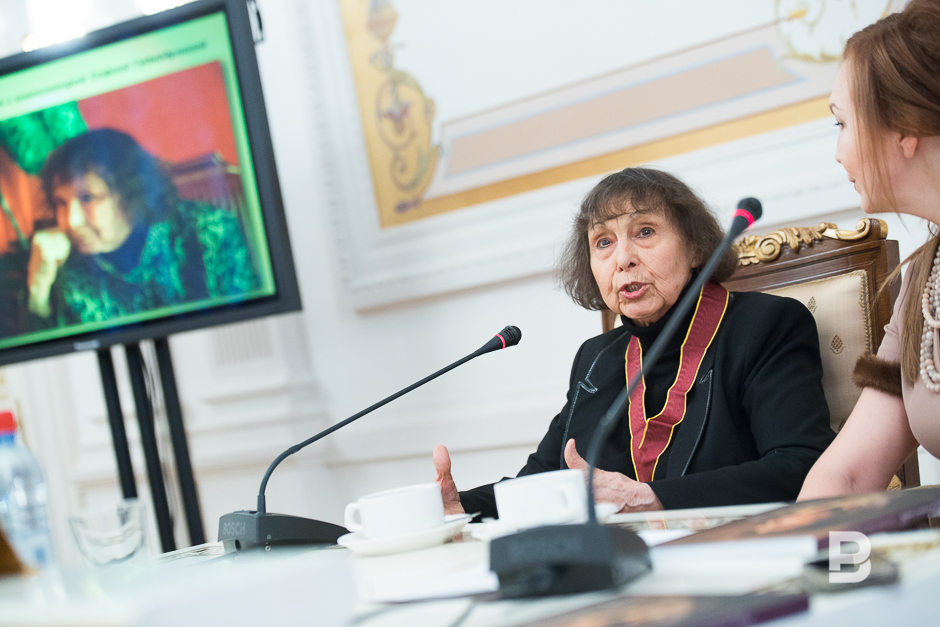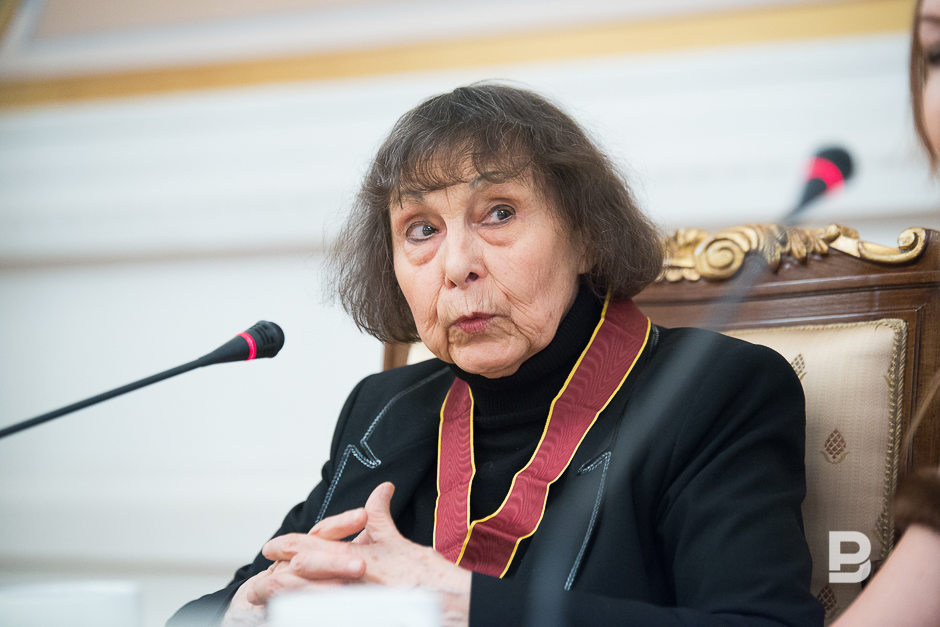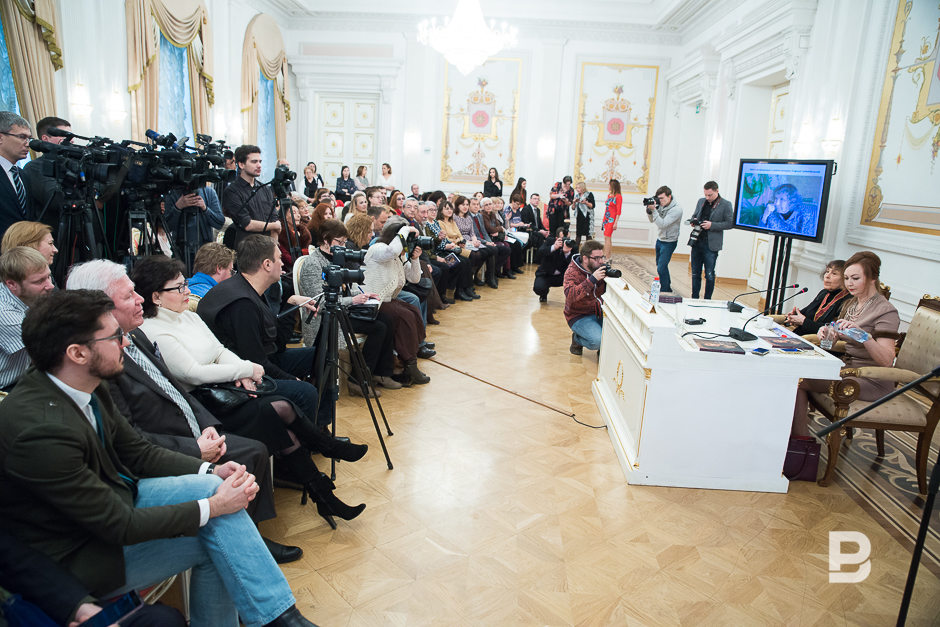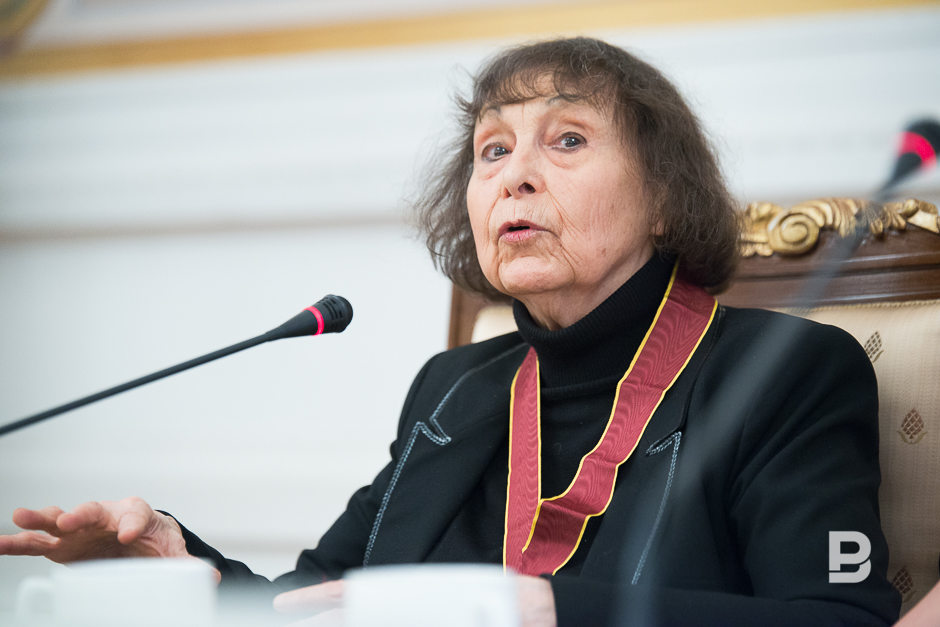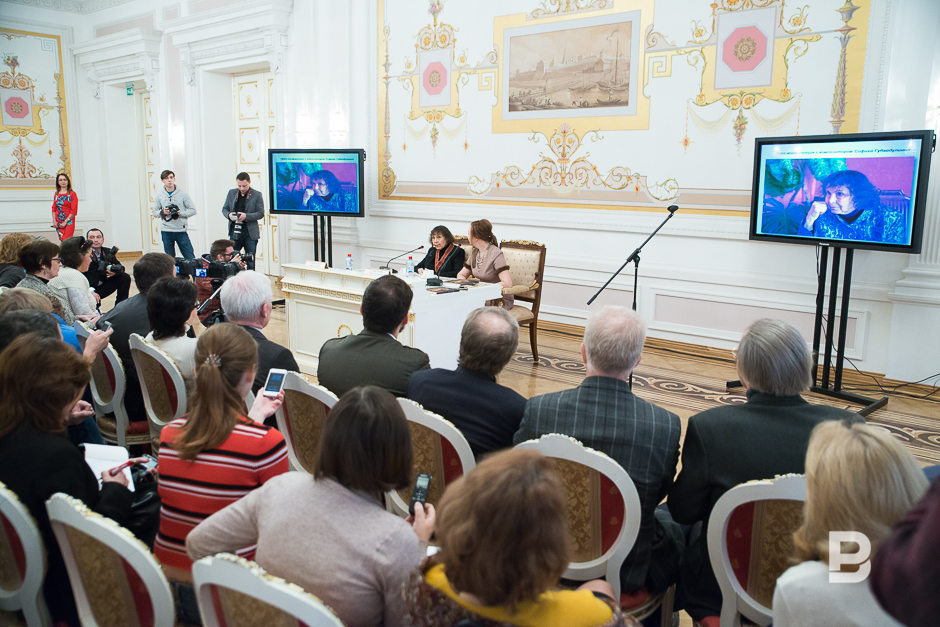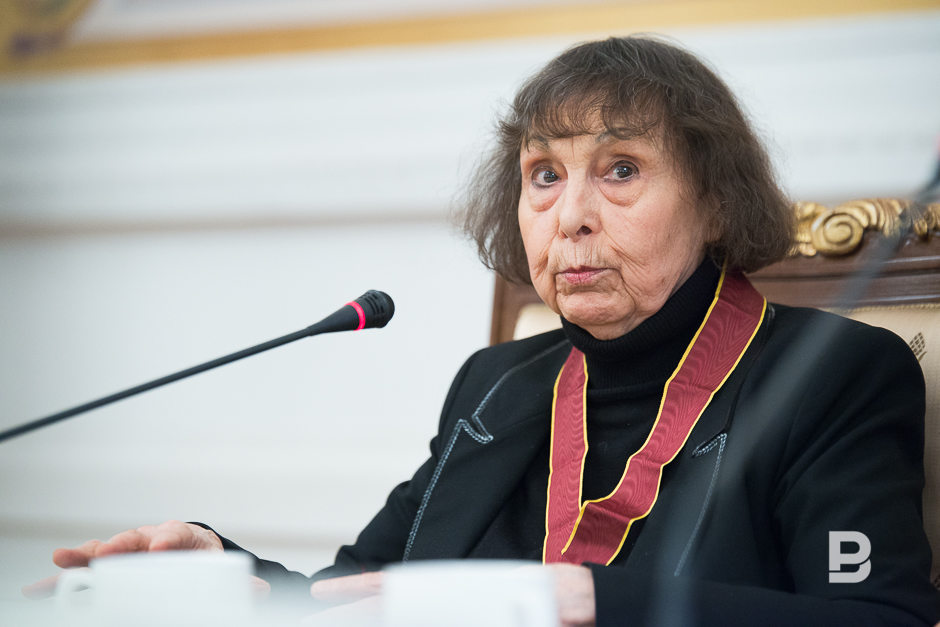Sofia Gubaidulina: ‘It is important for me to hear the sound of a tree, the sound of flowers’
Several concerts dedicated to Sofia Gubaidullina's jubilee took place in the capital of Tatarstan. The greatest compatriot of Kazan citizens arrived in her homeland by plane in the evening on 1 November from Moscow. She started the morning of the next day with the artistic intelligentsia in the City Hall. Gubaidulina answered whether people should think over their artistic creed as time goes by, told about the vision of her mission as a composer, what she talked to the former mayor of Kazan Kamil Iskhakov about several years ago and other questions in detail.
'I walked along all the Kazan streets'
The banquet room of the Kazan City Hall was full. Not all people who wished visit the meeting with Sofia Gubaidulina found unoccupied seats. The composer appeared with a person who accompanied her. The room stood up and started to welcome Sofia Asgatovna with applause. In fact, it was not a promised press conference but a meeting with the artistic intelligentsia of Tatarstan: there were many colleagues and composers among the guests.
The talk began traditionally – with a question what Kazan meant to Gubaidulina. 'Kazan is my youth. What is youth? It is a time when the foundation of the future is laid. I walked along all the Kazan streets, went on the Kremlin walls (it was possible at that time). Kazan is my homeland. I remember the music school years, my first teacher Ekaterina Leontieva with warmth. I was sent to her at the age of 5. I remember the school director Ruvim Polyakov. They were great people! I meet many people but I have not met other such people after that. Kazan takes a special place in my life. The fate gave me a present – I am in my homeland on my 85thbirthday,' answered the composer.
As Sofia Gubaidulina started to speak about her music school, she was asked whether she planned to write music for kids. In answer to it, Gubaidulina said she did not like to share her plans, though she emphasised she had many. So probably she will write something for kids.
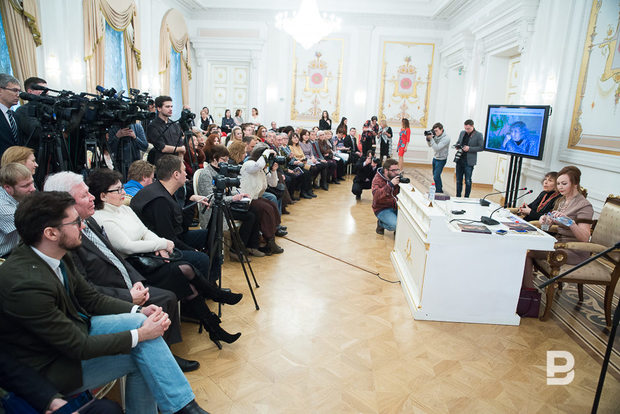
The Kazan topic continued with a question about the former Kazan mayor Kamil Iskhakov. Contemporaneous Music Centre named after her in the house on Thälmann Street where the composer spent her childhood and youth opened under Kamil Iskhakov.
'This person amazed me! He visited me in Germany, in the village where I live. We talked. I found we have an affinity of souls. I was astonished by his love for Kazan. When I came to Kazan, he accompanied me during evening walks when street lights are on, Kazan becomes different under their wonderful light. Kamil Iskhakov is in my soul,' Gubaidulina had a very emotional reaction to the question. It should be noted that she does have emotions and she expresses them if the topic is interesting for her even if she is a closed and moderate person.
'The Bible is more important for me now'
Elmir Nizamov was her first colleague to start to talk to Sofia Gubaidulina. Today he is perhaps the most prospective composer from Tatarstan… Nizamov is an unusual person. Gubaidulina noted the depth of his question for a reason. Elmir asked what really concerned him: what is a composer's mission?
'Every era has its own sound situation. It is necessary to find its disadvantages to overcome it,' Gubaidulina started a professional conversation. According to her, intellectual and intuitive cognition are parts of art. In today's world, the intellectual cognition prevails. But an artist needs to find a balance: the intellectual flow should not overshadow the intuitive one.
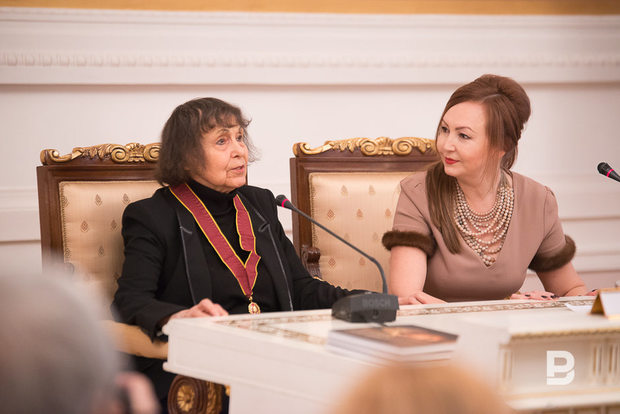
National poet of Tatarstan Renat Kharis was interested in the place of poetry in Gubaidulina's art. 'I love poetry. I love Tsvetaeva, Akhmatova, Mandelstam, Rilke. Sacral poetry is more important for me now – the Bible, prayer books of different religions,' Gubaidulina who adopted Christianity some time ago answered.
Her another colleague Lorens Blinov asked her a painful question. He told that some dedicated avant-garde composers changed their artistic position. They doubted the correctness of their road they had chosen.
'Yes, artists have such moods at times. Many people had them. It is not a characteristic of me. I did not have such a destruction. I have never had it. I think I have been writing one and the same song for all my life since the third year at the conservatoire. I have another structure: it is important for me to hear the sound of the world, the sound of a tree, the sound of flowers, my own sound. To hear is an eternal process. It is important for me to hear the depth of my soul. It needs a contemplation,' Sofia Gubaidulina said pensively. She reminded Dmitry Shostakovich's words that were addressed to her: 'Be yourself'.
'We are living in a global world'
Naturally, Gubaidulina's complicated and philosophic music did not cause everyday questions. For example, there was a question where national music should move. In the composer's opinion, culture is constantly enriched by culture of other ethnicities. We are living in a global world. The world became global especially after the appearance of the Internet. It is good that cultures enrich. We need to broaden our horizons.
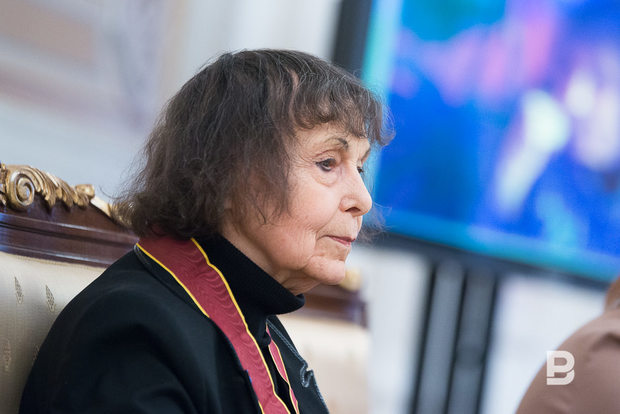
I think I have been writing one and the same song for all my life. <...> I have another structure: it is important for me to hear the sound of the world, the sound of a tree, the sound of flowers, my own sound. To hear is an eternal process. It is important for me to hear the depth of my soul. It needs a contemplation.
Gubaidulina was asked a question: what performers of her compositions meant to her because she dedicated many compositions to certain musicians. 'Performers are an important person. I need to see the person's eyes, his or her manner of speaking, manner of performing. Then I write for this person. Like it was with Kremer, Pekarsky and others. The same thing happened to an Estonian conductor Mustonen whom I dedicated a composition About Love and Hate to. A world premiere has taken place recently,' told Gubaidulina.
She revealed her artistic laboratory a bit. Sofia Gubaidulina told she works much. But to work under pressure doesn't mean to work productively. She thinks that contemplation and focus on herself are more important for her. The composer noted that the Tatar national music had a certain impact on her at her mother's knee.
After the artistic meeting with the composer in the City Hall, a presentation of a book dedicated to the composer called Under the Sign of Love. Composer Sofia Gubaidulina. On that days, citizens of Kazan had a busy music programme: the next concert of the Contemporaneous Music Festival named after S. Gubaidulina took place in the Saydashev State Great Concert Hall on 2 November, which has been held by the State Symphony Orchestra of the Republic of Tatarstan for the sixth time. A jubilee concert of Sofia Gubaidulina was in the City Hall on 3 November. Her compositions were performed there. There is one more concert in the programme of jubilee days. Probably it caused the composer's warmest emotions. It was to be held at her first music school where five-year-old Sonya was brought by her parents. Today's pupils prepared their own programme and called it Visiting Small Sofia.
